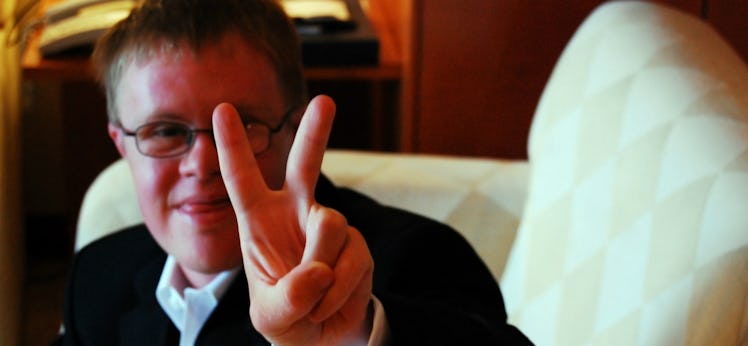7 Misconceptions About Raising A Kid With Down Syndrome
Number 5: People with Down syndrome are always happy.

The following was syndicated from Medium for The Fatherly Forum, a community of parents and influencers with insights about work, family, and life. If you’d like to join the Forum, drop us a line at TheForum@Fatherly.com.
October is Down Syndrome Awareness Month and an opportunity to spread awareness and advocacy throughout the community.
If you’re a parent, your days can be challenging enough. That’s why separating the truths from the myths of Down syndrome can be helpful.
Public Domain
Here’s a quick list of 7 common misconceptions, along with the truth:
‘Down Syndrome Is A Rare Disorder’
Not True. Down syndrome is the most commonly occurring chromosomal condition. One in nearly 700 babies in the United States is born with Down syndrome — that’s about 6,000 births per year. Today, there approximately 400,000 people with Down syndrome living in the United States.
‘Most Children With Down Syndrome Are Born To Older Parents’
Not true. Most children (possibly as high as 80 percent of children) with Down syndrome are born to women younger than 35 years old. Research points out that may be simply because younger women have more children. However, the likelihood of having a child with Down syndrome increases with the age of the mother, especially after age 35.
‘People With Down Syndrome Are Always Sick’
Not true. Individuals with Down syndrome do have a higher risk for certain medical conditions such as congenital heart defects. However, advances in health care, in particular since the early 80s, have allowed for many to lead long healthy lives.
‘People With Down Syndrome Cannot Be Active Members Of Their Community’
Not true. People with Down syndrome are active in social and community activities. They attend and are involved in school, sports, worship, and cultural programs, and make meaningful contributions to society.
‘People With Down Syndrome Are Always Happy’
Not true. People with Down syndrome experience a full range of emotions such as sadness, anger and happiness, just like everyone else. They respond to positive expressions of friendship and are hurt and upset by inconsiderate behavior.
Flickr / William Murphy
‘Adults With Down Syndrome Are The Same As Children With Down Syndrome’
Not true. Adults with Down syndrome are not children, and should not be considered children. They enjoy activities and companionship with other adults, and have similar needs and feelings as their typical peers.
‘Adults With Down Syndrome Are Unemployable’
Not true. Businesses employ adults with Down syndrome. And, like everyone else, people with Down syndrome want to have a job where their work will be valued. And, they even sometimes come down with a case of “the Mondays.”
Gary Krypel is a St Bonaventure grad student doing what he can to help parents and guardians of individuals living with intellectual and developmental disabilities.
This article was originally published on